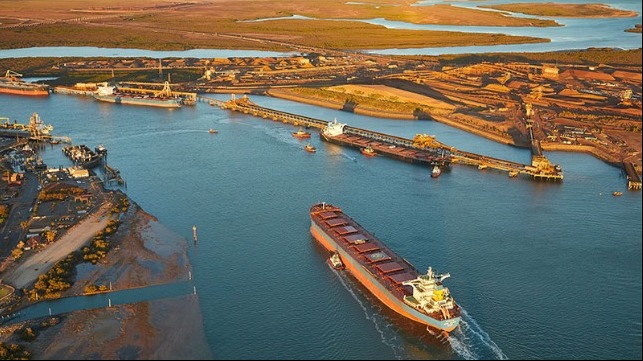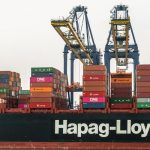Singapore shipping company Pacific International Lines (PIL) and Dubai-based port operator DP World agreed to jointly develop green solutions to decarbonize global shipping supply chains.
Under the deal, struck at the UN Climate Change Conference Dec. 6, the parties will collaborate on trial of shipments between Jebel Ali Port in Dubai and destinations within PIL’s network to reduce the shipments’ GHG footprint. The agreement includes shipments on PIL’s vessels powered by a biofuel blend, biofuel bunkering and deploying container handling equipment at terminals that run on renewable energy to handle the shipments.
The companies will also explore expanding this partnership to include other ports within DP World’s global network and using other alternative fuels, such as e-LNG, green methanol, or green ammonia in PIL’s vessel operations and bunkering.
“Decarbonization is the single biggest concern for DP World outside the constraints and the physical movement of goods. So, we are transforming our business and the impact global trade has on climate. We have already committed to becoming carbon-neutral by 2040 and achieving net-zero carbon emissions by 2050,” Tiemen Meester, DP World’s Group Chief Operating Officer, Ports & Terminals said.
PIL conducted a trial use of marine biofuel on its container vessel Kota Megah when it called at the Port of Singapore in April this year. The type of biofuel on trial is a blend of fatty acid methyl esters (FAME) and very low sulphur fuel oil (VLSFO). FAME is a renewable alternative fuel largely produced from recycled cooking oils and renewable oil sources which has physical properties similar to conventional diesel.
Recently, PIL signed a memorandum of understanding with port operator PSA Singapore to jointly develop sustainable solutions to cut carbon emissions and optimize maritime efficiency. The company has operations at over 500 locations in more than 90 countries with a fleet of around 100 container and multi-purpose vessels. Apart from the core liner shipping business, PIL also has several other business units such as container manufacturing, depot and logistics services.
Platts, a part of S&P Global Commodity Insights, assessed the price of Bio-Bunkers B24 Singapore at $723.24/mt on Dec. 7, down 2.74% on day.
In its Nov. 3 Freight Markets Bunker Forecast, S&P Global Commodity Insights estimated that global bunker fuel demand will reach around 328 million mt by 2030. Of this, all alternative fuels excluding LNG and LPG will likely have a 2.2% share in total bunker consumption, with biofuels expected to occupy a 6.2% share of this figure.
Source: Hellenic Shipping News






